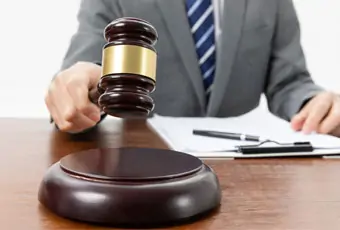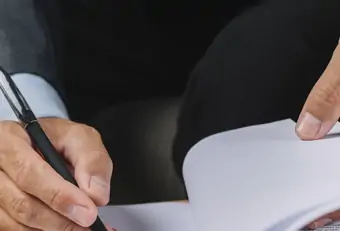Atlanta Legal Malpractice Lawyer
Atlanta Legal Malpractice Attorney
You have certain expectations when you work with a credentialed professional. After all, you are working with them because they have dedicated themselves to understanding a particular subject or area of study. You work with a certified public accountant because they know more about accounting than you do.
You work with board-certified doctors because they have a better grasp of medical conditions than you could hope to. People work with lawyers because of their understanding of the law and legal process.
Unfortunately, being a credentialed professional does not mean a person can’t make mistakes. An accountant could make a mistake on your taxes. A doctor can misdiagnose an illness. A lawyer can make an error in handling your case. These are all examples of malpractice.
People understand that when an accountant makes an error, the recourse is a civil claim against them. The same is true for a doctor, and most people are familiar with the concept of a medical malpractice complaint.
What many people might not realize is that if a lawyer makes a mistake in handling your case and it causes harm to you in some way, then the recourse is the same. A legal malpractice claim is a way for you to seek compensation for a lawyer’s mishandling of your case. At the Tatum Law Firm, we help our clients with these claims.
Making the Case for Legal Malpractice
A legal malpractice case follows the general pattern of a personal injury claim in Atlanta, with some unique elements to address the specific nature of legal claims. Legal malpractice claims can often be some of the most complex legal cases, as they often involve litigating two cases at once.
For something to be legal malpractice, the outcome of a prior legal situation must have been likely different if the error hadn’t occurred. If the prior matter was a court case, there will have to be a reconsideration of that case within this new case in Atlanta, GA.
Attorney-Client Relationship
The first thing that needs to be shown in a legal malpractice case is the connection between the plaintiff and the attorney. Only in the circumstance that there is a representative connection, where the lawyer was acting as the representative of the plaintiff, was there also a duty for the defendant to meet the standards for a lawyer.
This relationship is usually shown to exist based on a retainer or fee agreement between the two parties. The attorney-client relationship established that the defendant had a duty to provide a level of service, performance, and behavior in keeping with the standard expected of a legal representative.
Breach of Duty
Once the duty on the part of the defendant is established, the next thing your lawyer must do is describe exactly how they failed to meet that duty. This failure is known as a breach of duty. The failure could take many different forms, but the key is that they failed to behave as a reasonable lawyer would, given the same situation.
Proving this breach can be challenging, and it may often require bringing in another lawyer as an expert witness to present what the expectation should have been in that situation and how the actions or inactions of the lawyer failed to meet those expectations.
The breach of duty doesn’t have to be malicious intent. It could be nothing more than an honest mistake. There are times when a lawyer fails to mention a conflict of interest because they honestly didn’t think it was important to mention or maybe didn’t even recognize it themselves.
Similarly, lawyers are like everyone else, and sometimes, schedules, timelines, and calendars can trip them up. However, this could lead to a missed deadline for a lawyer. The plaintiff’s team is not required to demonstrate ill-intent but merely that the breach occurred.
Resultant Harm Because of the Breach
Next, it must be shown that the failure of the lawyer to live up to their duty created a situation that resulted in harm to the plaintiff. In most cases, this will be financial harm, although it could be something else. Proving the harm depends on the nature of the situation in which the breach occurred.
If there was an issue with the lawyer agreeing to or rejecting something on behalf of the plaintiff without explaining the consequences, then the plaintiff’s lawyer will need to describe the harm that occurred as a result of that. One of the more complex situations occurs if the issue was a prior case.
When the breach affected a prior case, then the plaintiff’s lawyer must argue that the outcome of the case would have been different if it weren’t for the breach. This can involve a kind of replaying of the original case but demonstrating how the defendant’s living up to the standard expected of them would have gotten their client a better outcome.
This puts the defendant in the position of arguing that their former client would have had a less favorable outcome either way. In other words, the defendant has to argue against the position they were previously arguing for. The complexity of all this and ensuring everyone in the court is keeping up with things is why it’s essential to work with a skilled lawyer when making a legal malpractice claim.
Lastly, the different outcome must be shown to have caused the plaintiff real harm. This will often be some form of financial harm, but there are also potential forms involved. For instance, if a lawyer’s malpractice affects a person’s business, possibly even placing their survival in jeopardy, there could be significant emotional distress associated with that situation. What’s critical, though, is that the plaintiff’s harm must be directly tied to the breach in question.
What You Can Recover
The exact nature of what can be recovered in a legal malpractice case is heavily dependent on the case in question. Whatever the case, though, it is critical that the costs the plaintiff is trying to recover must be shown to be incurred directly because of the error on the part of the plaintiff’s former lawyer.
Proving this harm and what was lost because of it is another complex part of the legal malpractice claims. It’s hard to prove a negative, but the plaintiff’s lawyer will need to use evidence to give a strong argument for what would have happened if things had been different. Some of the costs that could be recovered in a legal malpractice case include:
- Financial loss. If it can be shown that an attorney’s negligence led to a financial loss, then this could be compensated. It could be a settlement that was lower than would have otherwise been agreed to. It could also be a civil case that would have been won instead of lost or was won but with lower damages than could have been otherwise awarded.
- Loss of opportunity. There are some cases when a lawyer’s negligence results in a missed opportunity. It could be filing a claim too late or some other missed legal opportunity through the failure of the lawyer to communicate properly. The value of these opportunities may be compensated for.
- Emotional distress. Although very rare, there are times when emotional distress can be paid out in a legal malpractice case. It’s possible that the loss of an opportunity or case could leave a plaintiff in such a dire situation that emotional distress can be proven, and compensation could be awarded for it.
- Punitive damages. In rare cases, punitive damages may be awarded. These damages, though, are meant to serve as a deterrent from a particular behavior and as a punishment for what was done. For these damages to be awarded, there would have to be something malicious or particularly egregious about the behavior of the defendant.
When You Need to File a Legal Malpractice Claim in Atlanta
Georgia has a statute of limitations of two years on a legal malpractice claim. However, that can be extended if the negligence is discovered later. In these cases, you have two years to file a claim from when the problem should have been reasonably discovered. Even in that situation, though, the latest you can bring a claim is four years after the negligence originally occurred.
We Can Help if You Think You’ve Been a Victim of Legal Malpractice
Legal malpractice can have many different forms, and sometimes, it can be a challenge to identify. Just because a case or settlement ended with an outcome that you didn’t want isn’t reason enough alone for malpractice.
It must be something where your lawyer fails to live up to the standard expected of someone in their position. It doesn’t have to be something malicious on the part of your lawyer, and it could be nothing more than an honest mistake.
Still, if you suffered some harm, financial or otherwise, as a result of that mistake, then you should receive compensation. At the Tatum Law Firm, we help people seek out that restitution. If you think you may have a legal malpractice case, then contact us today.






